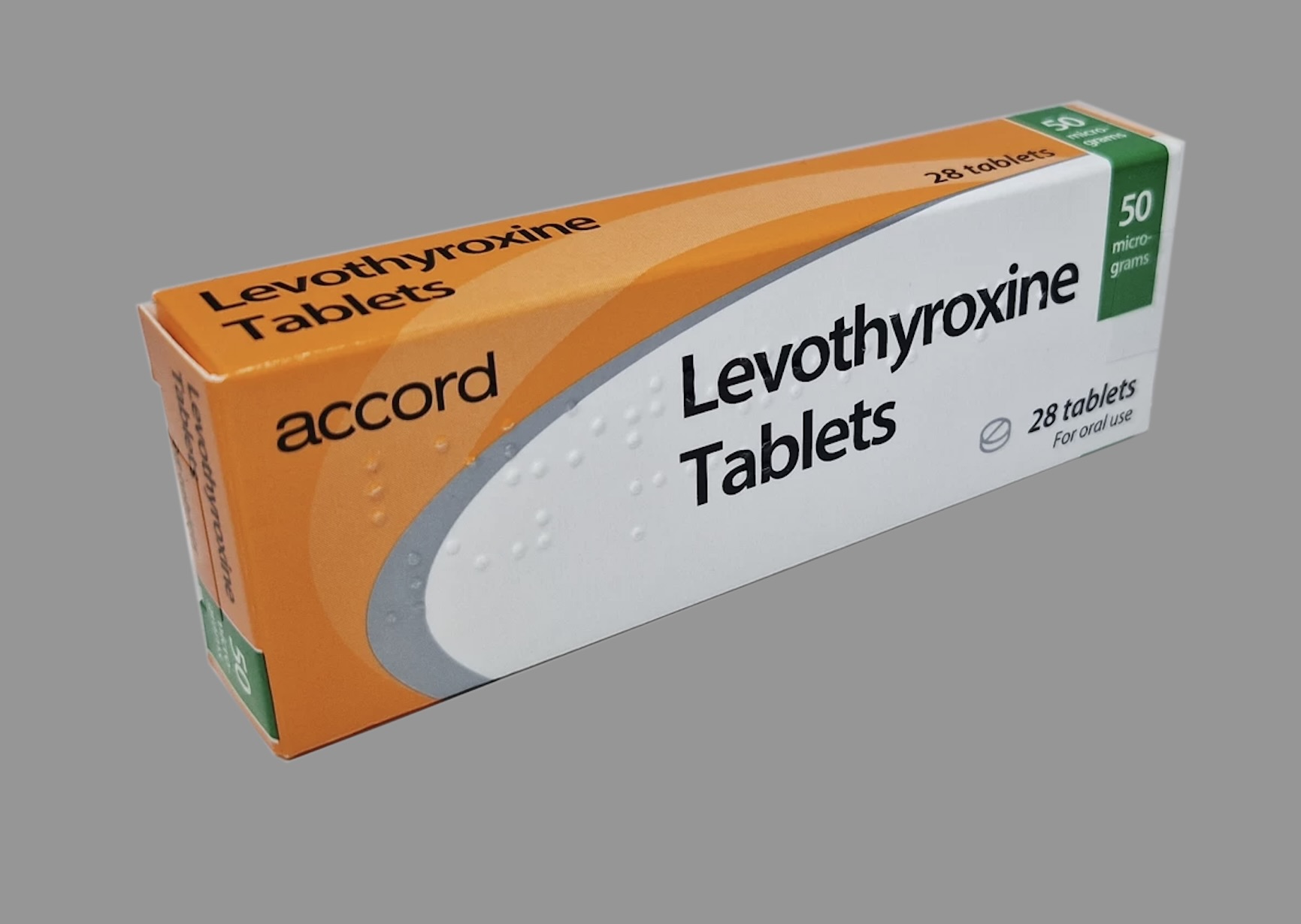Levothyroxine: Health Benefits & Risks
What are the health benefits of levothyroxine?
Levothyroxine is a synthetic form of the thyroid hormone thyroxine (T4) and is used to treat hypothyroidism, a condition where the thyroid gland does not produce enough thyroid hormone. Some of the health benefits of levothyroxine include:
- Normalization of thyroid hormone levels: Levothyroxine helps restore normal thyroid hormone levels in people with hypothyroidism, which can improve symptoms such as fatigue, weight gain, cold intolerance, dry skin, and hair loss.
- Improved energy levels: By restoring thyroid hormone levels, levothyroxine can help improve energy levels and reduce feelings of fatigue and lethargy associated with hypothyroidism.
- Weight management: Levothyroxine can help regulate metabolism and promote weight loss in people with hypothyroidism who have gained weight due to the condition.
- Improved mood: Thyroid hormones play a role in regulating mood, and levothyroxine treatment can help improve symptoms of depression and mood swings associated with hypothyroidism.
- Regulation of body temperature: Thyroid hormones help regulate body temperature, and levothyroxine can help improve cold intolerance and sensitivity to cold in people with hypothyroidism.
- Improved heart health: Hypothyroidism can affect heart function, and levothyroxine treatment can help improve heart rate, blood pressure, and cholesterol levels, reducing the risk of heart disease.
- Prevention of complications: Untreated hypothyroidism can lead to complications such as goiter (enlarged thyroid gland), myxedema (severe hypothyroidism), and in rare cases, coma or death. Levothyroxine treatment can help prevent these complications.
It’s important to note that while levothyroxine can be highly effective for treating hypothyroidism, it must be taken as prescribed and monitored regularly by a healthcare provider to ensure that thyroid hormone levels are within the normal range. If you have any questions or concerns about levothyroxine, talk to your healthcare provider.
What are the health risks of levothyroxine?
Levothyroxine is generally considered safe and effective for most people when taken as prescribed. However, like all medications, it can cause side effects and carry certain health risks. It’s important to be aware of these risks and discuss them with your healthcare provider before starting treatment. Some of the health risks associated with levothyroxine include:
- Overdose: Taking too much levothyroxine can lead to symptoms of hyperthyroidism, including rapid or irregular heartbeat, chest pain, tremors, excessive sweating, heat intolerance, and weight loss. In severe cases, overdose can lead to thyroid storm, a life-threatening condition.
- Cardiovascular effects: Levothyroxine can increase the risk of cardiovascular events, especially in older adults or people with preexisting heart conditions. It can cause an increase in heart rate and blood pressure, which can be problematic in these populations.
- Osteoporosis: Long-term use of levothyroxine, especially at high doses, can increase the risk of osteoporosis, a condition characterized by weakened bones that are more prone to fractures.
- Adrenal insufficiency: In rare cases, levothyroxine can unmask or worsen adrenal insufficiency, a condition where the adrenal glands do not produce enough cortisol. Symptoms of adrenal insufficiency include fatigue, weakness, dizziness, and abdominal pain.
- Pregnancy complications: Untreated or poorly controlled hypothyroidism during pregnancy can increase the risk of complications, including miscarriage, preeclampsia, preterm birth, and developmental issues in the baby. It’s important for pregnant women with hypothyroidism to receive appropriate treatment and monitoring.
- Drug interactions: Levothyroxine can interact with other medications, including antacids, calcium supplements, iron supplements, and certain medications used to treat seizures or high cholesterol. These interactions can affect the absorption and effectiveness of levothyroxine.
- Allergic reactions: Some people may experience allergic reactions to levothyroxine, including rash, itching, swelling, or difficulty breathing. These reactions can be serious and require immediate medical attention.
It’s important to use levothyroxine only as prescribed by a healthcare provider and to follow their instructions carefully. If you have any questions or concerns about levothyroxine, talk to your healthcare provider.
TL; DR: Levothyroxine Summary
Levothyroxine is a synthetic form of the thyroid hormone thyroxine (T4) that is used to treat hypothyroidism, a condition in which the thyroid gland does not produce enough thyroid hormone. It is also used to treat certain types of goiters and to prevent and treat symptoms of an enlarged thyroid gland.
Levothyroxine works by replacing or supplementing the natural thyroid hormone that the body is lacking, helping to normalize thyroid hormone levels in the body. This can help alleviate symptoms of hypothyroidism, such as fatigue, weight gain, cold intolerance, and hair loss.
Levothyroxine is typically taken orally in the form of tablets or capsules, usually once daily on an empty stomach, at least 30 minutes to an hour before breakfast. The dosage of levothyroxine will vary depending on the individual’s condition, age, weight, and response to treatment.
Common side effects of levothyroxine may include temporary hair loss, weight changes, insomnia, anxiety, and increased heart rate. More severe side effects may include chest pain, irregular heartbeat, allergic reactions, or signs of overdose. It is important to seek medical attention if you experience any severe or persistent side effects while taking levothyroxine.
Levothyroxine can interact with other medications and supplements, so it is important to inform your healthcare provider about any existing medical conditions or medications you are taking before starting treatment with levothyroxine.
It is important to follow your healthcare provider’s instructions closely while taking levothyroxine and to attend regular follow-up appointments to monitor your response to treatment. Do not stop taking levothyroxine abruptly, as this can lead to a worsening of hypothyroidism symptoms. If you wish to discontinue levothyroxine, talk to your healthcare provider about the best way to gradually taper off the medication.
If you have any questions or concerns about taking levothyroxine, be sure to discuss them with your healthcare provider. It is important to seek medical advice if you have any concerns about your thyroid health or experience any negative side effects while taking levothyroxine.




